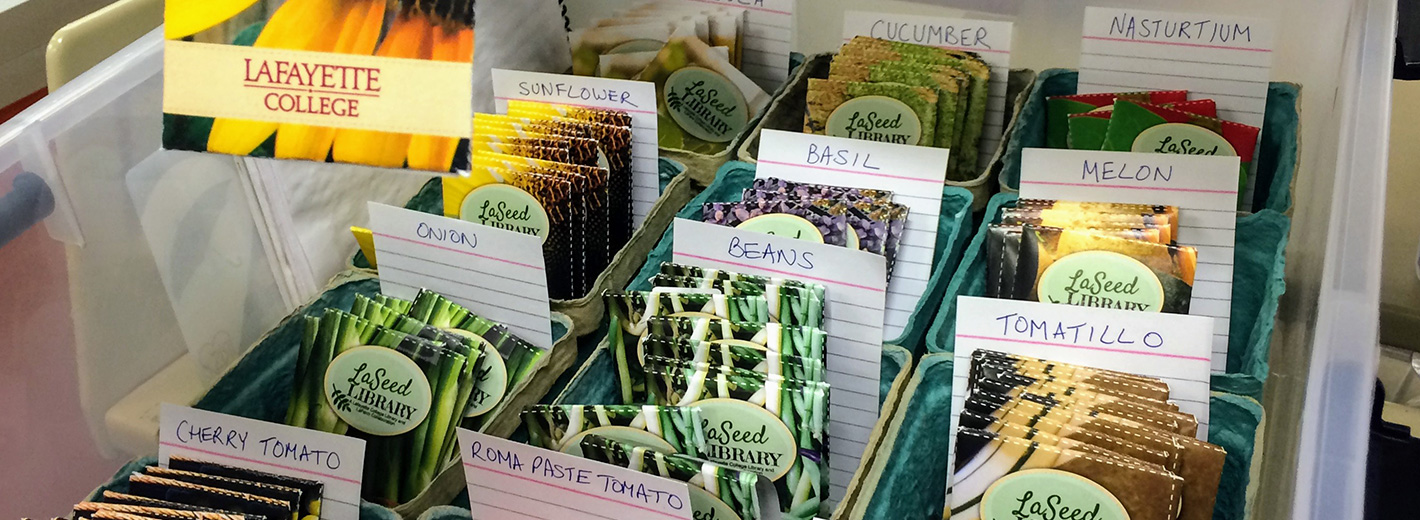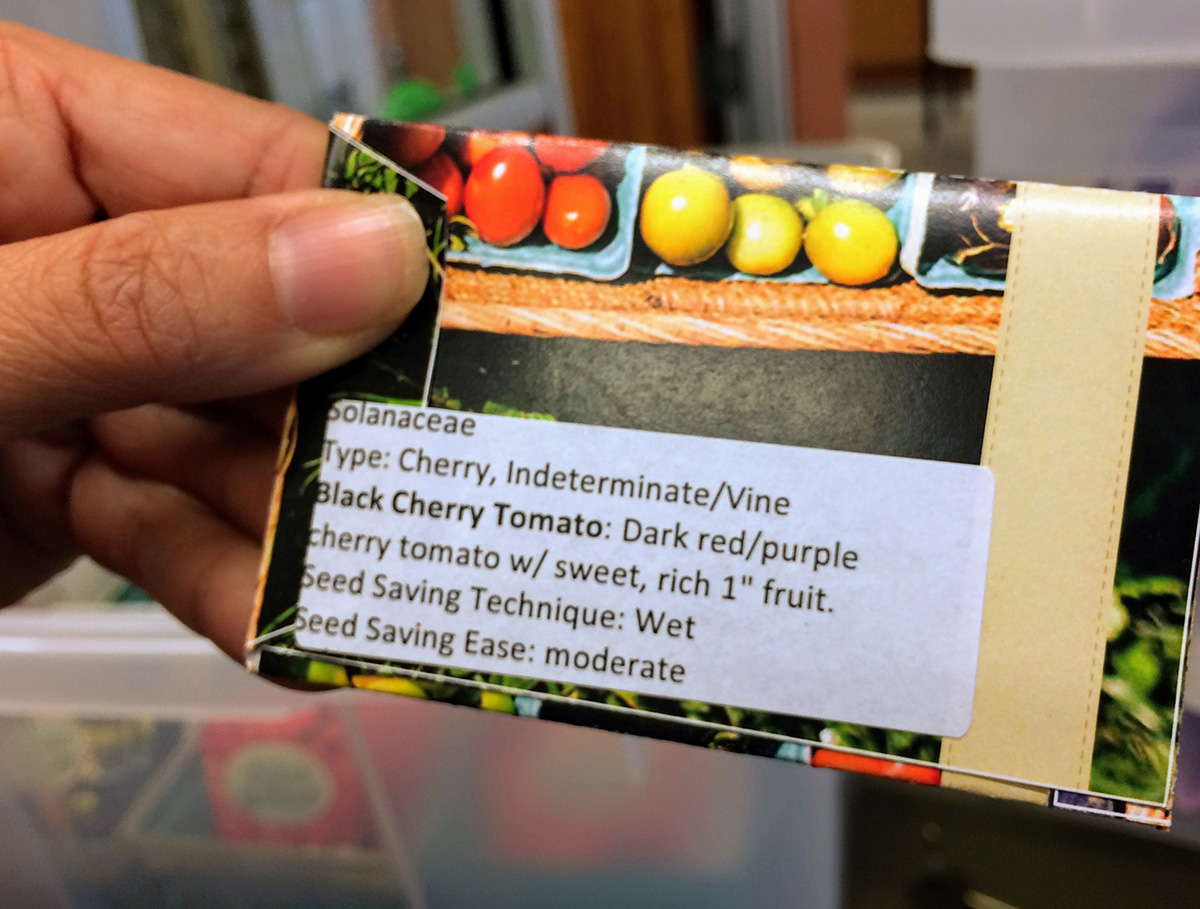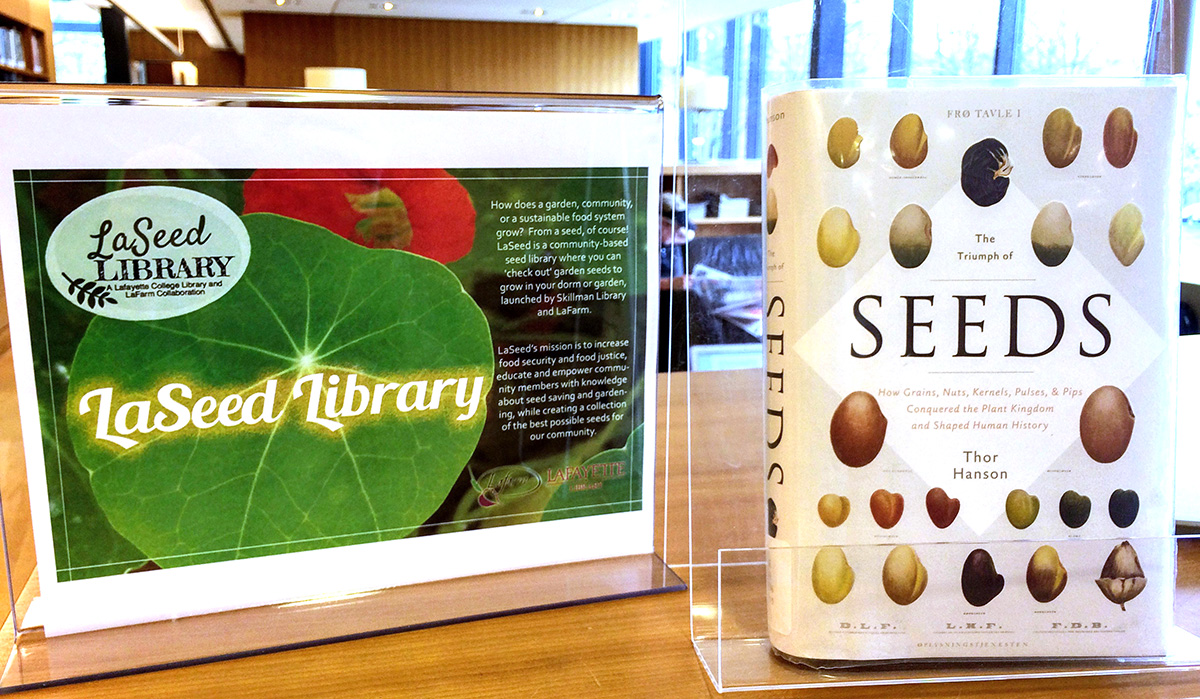
Lafayette College’s LaSeed Library Puts Public Gardens in Circulation
Lafayette College’s campus farm, LaFarm, has supported an impressive number of offshoot projects over the years, including a fraternity that wanted to grow and bottle its own hot sauce, a program to start a produce stand in local food deserts, and a robust set of 35 community garden plots, to name a few. So it comes as no surprise that LaFarm is the first campus farm we’ve seen collaborating with the college library.
Campus farmer Sarah Edmonds and Skillman Library Director of Outreach and Access Services Kylie Bailin were inspired by public libraries nationwide that started programs for community members to take free seeds and grow gardens. They brought together a focus group of student Library Ambassadors and LaFarm workers to develop the plan and vision for what would become Lafayette’s own “LaSeed” Library.
LaSeed Library aims to increase food security and food justice by educating and empowering community members to grow their own foods through gardening and seed saving. Anyone can come up to the circulation desk, peruse the binder of available seeds, and ask for a packet, completely free. The seeds come in a vibrant packet with a one-page pamphlet on how to cultivate your new plant, written and designed with expert advice from Lafayette’s resident farmer, Sarah.
After much planning and preparation, LaSeed Library officially launched this past spring with a onion planting on the steps of Skillman Library. Other outreach events have included a basil planting, garlic planting, and an ongoing display of seed-related books and movies in the library. Sarah and Kylie’s plan is to start with a soft launch for Lafayette students and staff, but as the program grows, they’ll spread the word to the wider Easton community.
The initial seed stock is made up of LaFarm’s surplus organic seeds left over at the end of each growing season. LaSeed Library currently offers 14 varieties of vegetables, herbs, and flowers that can be easily grown in gardens or even dorms. The long-term goal is to educate community members about seed saving, and thus begin the cycle of returning seeds to the library. Like any good library, LaSeed Library will hopefully develop a robust collection as their stock grows overtime, creating a selection of the best possible seeds for Easton gardens.
When you think about it, books and seeds have a lot in common. Whether it’s knowledge or nourishment, they each carry extraordinary potential in a small package, you just need to invest some time and effort to reap their rewards. And like education, one could argue that access to great healthy foods is a human right, and partnerships like LaSeed Library are inspiring steps towards greater public access to the (literal) seeds of food sovereignty.

